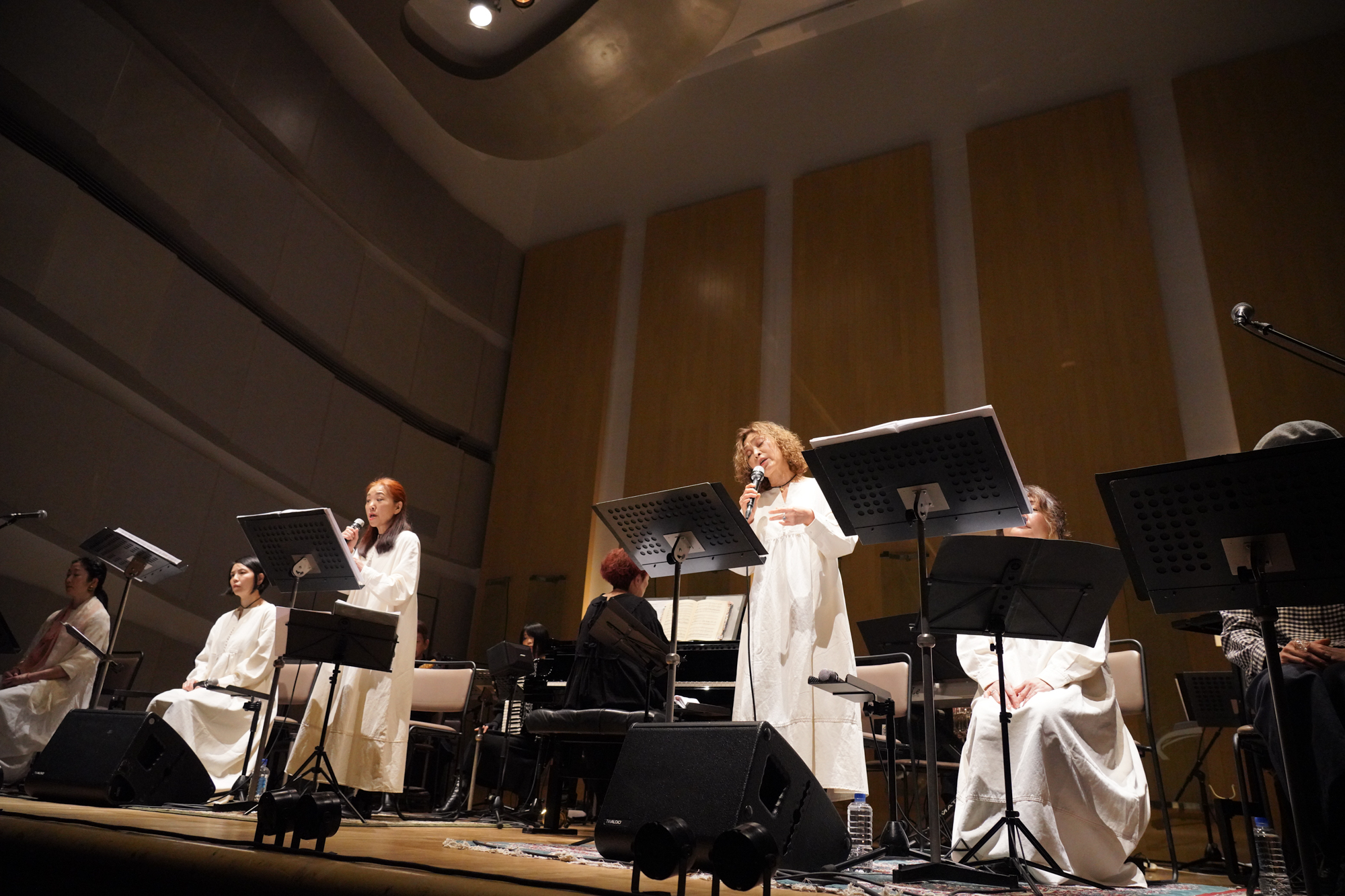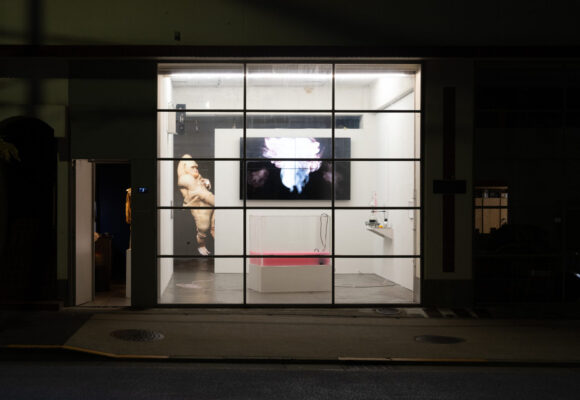Music journalist and critic. He was editor of Ongaku No Tomo, and Record Geijutsu, the most famous classical music magazine in Japan, from 1989 to 2000. From 2007 to the present, he has been a regular performer on OTTAVA, a prominent Japanese classical music internet radio station. He has written articles and books on a wide range of arts, with a focus on classical music.
Photo: Asami Nagashima
What is the meaning of having jazz and pop musicians perform the “St. Matthew Passion” by Johann Sebastian Bach (1685-1750), written in eighteenth-century Germany and considered one of the greatest pieces of religious music ever? The singers, all holding microphones, sang in German in the style of pop music, while the evangelists (narrators) were not singers but three actors who performed in Japanese. Meanwhile, the choral parts were sung in German by a Vocaloid (synthetic voice). What was the reason for such a bold approach?
To put it bluntly, for obstinate specialists and aficionados of classical music, this project sounds like gibberish. But then those people should go to the concert of some distinguished baroque performer instead. The aim here was not to produce highly accomplished music faithful to the original, but rather, by challenging and deviating from it, to use music as a means to a different end.
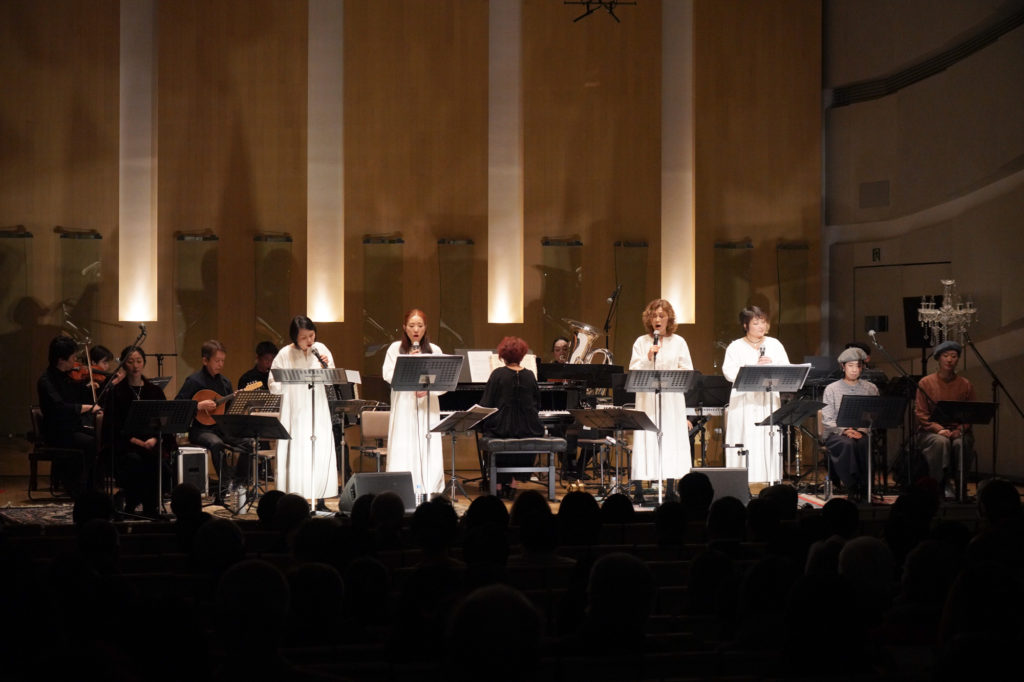
Photo: Asami Nagashima
The advantage of pop over classical music is that it resonates more contemporarily. The same is true of small-scale theater. If there is an advantage to singing in the pop style with a microphone rather than in the bel canto lyrical style, it’s that the former makes the songs sound more life-sized and personal. Playing on that advantage, Bach could be performed in a completely different way, making his music a more poignant experience for people today. That’s probably the idea at the root of this project.
The original “St. Matthew Passion” is a German-language musical drama that tells the New Testament story of the Passion and Resurrection of Jesus Christ in a highly engaging manner, with solo singers and a choir playing various roles while the narrator, or Evangelist, explains each situation. The work is imbued with a real drama that takes it beyond the dimension of mere beautiful prayer music. The lies and weakness of the disciples who betray Jesus, the hatred of the crowd who ridicule and spit on Jesus as he is captured and crucified; Bach’s genuine touch in depicting such unseemly but human aspects is one of the indispensable strengths of the “St. Matthew Passion.”
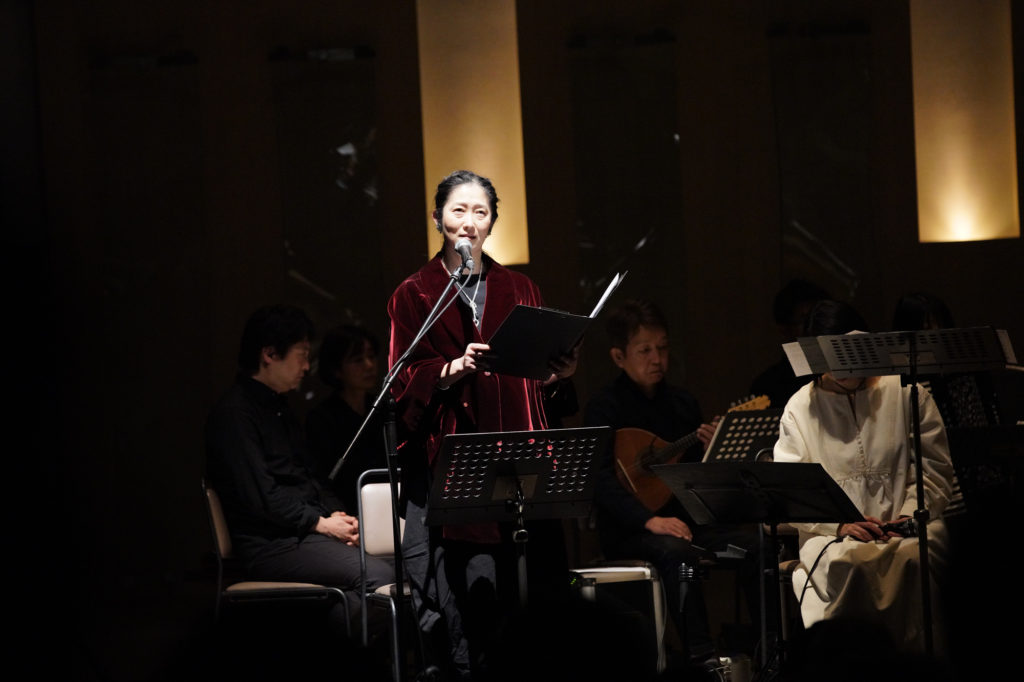
Photo: Asami Nagashima
What makes this “St. Matthew Passion 2023” rendition unique is that it incorporates not only the original’s story of the Passion of Jesus, but instead employs a dual narrative through the bold insertion into the Evangelist’s part of an episode of dialogue between Ivan and Alyosha from the chapters “Rebellion” and “The Grand Inquisitor” from Dostoevsky’s novel “The Brothers Karamazov.”
Why combine the “St. Matthew Passion” with “The Brothers Karamazov”?
Perhaps it’s because Bach and Dostoevsky shared the same deep insight into the potential for violence, sadism, deception, and stupidity that all human beings possess—something that perhaps shezoo, the planner, writer, arranger, and musical director of “St. Matthew Passion 2023,” had noticed.
I think this premise worked very well. The hideousness of the crowd mocking the captive Jesus in the New Testament and the horror of the parents who abuse their little girl in “The Brothers Karamazov” resonated peculiarly and, together with the enthusiasm of the performers, pulled the audience into Bach’s music, which was given a modern arrangement. The audience’s fascination bordered on possession.
Incidentally, “St. Matthew Passion 2021 – People Lie” (at Toyosu Civic Center Hall, February 20-21, 2021), performed two years before “St. Matthew Passion 2023,” was based on a near-future, sci-fi-esque original script. Although that script was interesting in its own way, to me the scenes from Dostoevsky this time seemed to make for a story with more universal power.
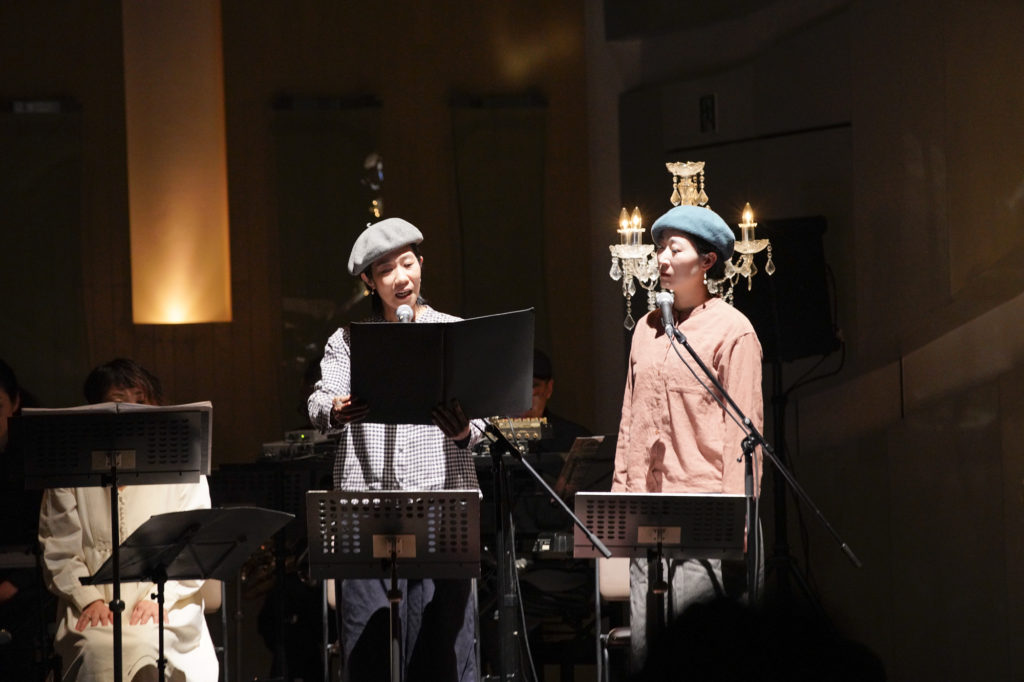
Photo: Asami Nagashima
I’d also like to mention a few things about the arrangement. It was very effective to have a Vocaloid sing the chorale parts, which appear here and there in the original “St. Matthew Passion” in the form of hymns to be sung by the congregation. The Vocaloid’s rendering of that prayer chorus conjured up a dark, dystopian, end-of-the-world atmosphere. It had an addictive quality and lingered in my ears for a long time.
In addition, it was interesting to note the insertion of modern instruments not used by Bach (including the clarinet, sax, bandolin, and accordion), as well as jazz-like sounds throughout. The use of the tuba in the bass part was also effective. This was especially noticeable in the introduction and conclusion of the grand choral movements in both the first and second parts, where the overall sound tends to thin out unless the bass movement has a solid depth. The low tones of the tuba and piano solved this problem.
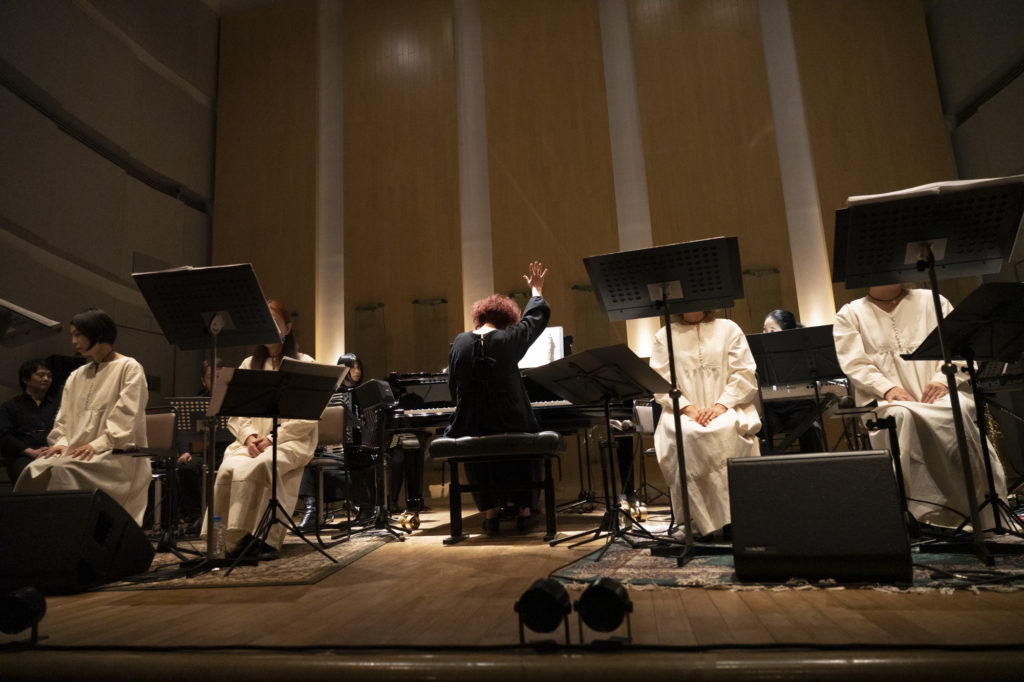
Photo: Asami Nagashima
To conclude, I’d like to touch on some of the work’s challenges. Hakuju Hall is a richly reverberant venue that was designed for live sound, so achieving the right acoustic balance when performing through the speaker system must have been difficult. From my seat, I could hardly hear the Vocaloid’s voice. Another thing I took note of was the advantages and disadvantages of having all the singers and actors be women. That the parts related to singing and words were all played by women lent the work a distinctive force and cohesiveness, and it was certainly possible to listen to the performance as a whole without any discomfort. However, one expects sections such as the aria “Mache dich, mein Herze, rein” (“Make yourself pure, my heart”), which precedes the epilogue, to be sung with a sense of peace and tranquility in a calm, low male voice, just as in Bach’s original. Perhaps this is wishful thinking on the part of a classical music fan, but I’d be interested in hearing the results of an effective application of the male voice.
This project’s use of the “St. Matthew Passion” opens up Bach’s music to an audience completely different from that of classical music, and certainly provides pop musicians with an unparalleled opportunity for growth through the challenge of conveying exquisite melodic lines and harmonies. How, then, to develop it further? For example, what would happen if one opted for a studio recording session rather than a live performance in a concert hall? What literary works other than “The Brothers Karamazov” could be interesting to use? One imagines the possibilities to be endless.
Translated by Ilmari Saarinen
INFORMATION
St. Matthew Passion 2023 –God and Lies–
Planning, script, arrangement, musical direction: shezoo
Date: January 7, 2023
Venue: Hakuju Hall
Organized by: St. Matthew Passion 2023 Executive Committee
Vocalists: Manami Ishikawa, Taiko Matsumoto, Sawori Namekawa, Noriko Suzuki
Evangelists: Kanako Nishida, Yukiko Senga, Kana Kuroki
Musicians: shezoo (piano), Kentaro Nishida (violin), Naoko Kitazawa (flute), Hiroyuki Teramae (bandolin), Tokuhiro Doi (clarinet), Kunikazu Tanaka (sax), Momo Sato (tuba), Hideko Kimura (keyboard), Yuka Fujino (accordion), Yasushi Sakai (Vocaloid)


